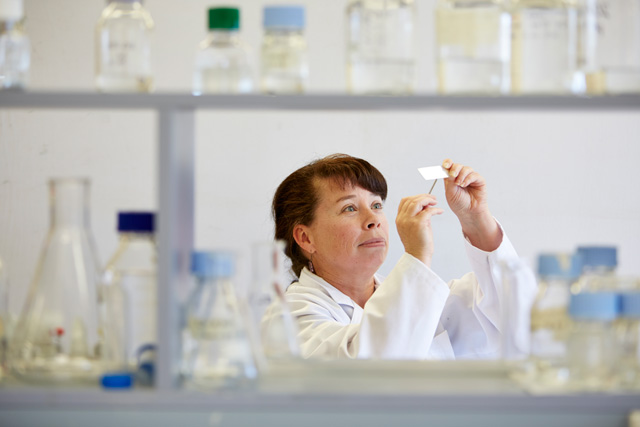Gender Equality Strategy
UC will be the national sector leader in equity, diversity, inclusion and access."
Distinctive by Design: Our Strategic Plan 2018-2022
The University of Canberra has a strong commitment to becoming the national sector leader in equity, diversity, inclusion and access. We have a long history of proactively supporting gender equality, and was an Employer of Choice for Gender Equality, awarded by the Workplace Gender Equality Agency (WGEA) for twelve consecutive years until our last submission in 2019.
The University of Canberra (UC) believes gender equality in the workplace is an issue that matters, and equal pay is firmly entrenched in the fabric of our daily operations. UC is amongst Australia’s foremost commercial, professional and educational organisations leading the charge in promoting an active commitment to gender equality in Australian workplaces through initiatives including a generous paid parental leave scheme for the primary caregiver, increased paid partner leave and flexible working arrangements.
Our commitment to gender equality is demonstrated through the internationally recognised Athena SWAN Institutional Bronze Award that University of Canberra received as part of the Science in Australia Gender Equity (SAGE) initiative in February 2020. Find out more about Athena SWAN.
The University's challenge is to build on our success, and we aim to do so by focusing on:
- Recruitment & retention
- Leadership development
- Achieving and maintaining relevant accreditations
- Academic promotion rates, with a focus on STEMM
- Creating an appropriate work environment
- Improving and maintaining our sector leading flexible and family friendly conditions of employment
Details of these six objectives can be found below.
UC's Gender Equality Strategy Objectives:
Recruitment
The University's Managed Recruitment Service has gender, and other diversity KPIs, built into the contract. The current contract requires the University and its recruitment partners to meet or exceed the gender target of > 50% successful candidates being women, a target that has been exceeded in all quarters to date. Continued successful recruitment across all levels of employment at the University, along with targeted retention strategies, will continue to improve our gender composition at all levels.
Retention
University remuneration is in the top third of the higher education sector, and is highly competitive compared to our local market. The new University Enterprise Agreement improved what were already community leading flexible work practices, parental leave provisions and other attractive benefits. See the Flexible and family friendly conditions of employment section for further detail.

In recognition of the required improvement in the gender composition at management levels, the University's Talent Management team has shifted its gender focus to leadership programs targeting this cohort of employee, with women's participation targets.
The two flagship programs aimed at current and aspiring professional and academic managers are the Management Essentials and Emerging Leaders courses which have a gender target of > 50% women attendees. The same target applies to the University's mentoring program.

Domestic and Family Violence
The University was proudly a member of the first cohort of employers in Australia to become an accredited White Ribbon Workplace. Our continuing commitment to assist employees facing domestic and family violence, include the domestic violence provisions of our Enterprise Agreement, and the associated domestic violence protocols.
Breastfeeding Friendly Workplace
The University recognises the importance of supporting women in a transition back into the workplace from parental leave. Maintaining our Breastfeeding Friendly Workplace accreditation, along with our flexible working conditions (including paid breastfeeding breaks), is critical to supporting a workplace culture which supports women and employees with young families.
The considerable time it takes to establish a research profile, both in terms of attracting research grant income and building a record of publishing in world ranked journals, means that career breaks for parental leave and caring responsibilities can have a greater impact on academic employees than their professional and clerical staff colleagues. This is evidenced by the lower rates of promotion for women to the Associate Professor and Professor levels. This strategy includes two measures to address this issue:
Coaching & Support
In order to progress promotion rates for women, the University has committed to the introduction of targeted coaching, mentoring and support for women Associate Professors aimed at increasing our promotions rate to Professorial appointments.
The Athena Swan Charter & the Science in Australia Gender Equity (SAGE) Initiative

In September 2015, the University of Canberra became an inaugural member of the Athena Swan Charter aimed at tackling gender equality in science, technology, engineering and mathematics and medicine (STEMM). The associated SAGE Initiative aims to bring together the fragmented approaches to gender strategies in STEMM. Women in Science and other areas of STEMM research has become a high profile national conversation due to the statistics that demonstrate while women account for 50% of PhD graduates, they represent only 17% of senior academics nationally. Through this initiative, the University of Canberra seeks to build on the improvements made in academic promotions in recent years with better targeted strategies into the future.
Read more about the Athena Swan Charter & the SAGE Initiative here.
In the life of this strategy, the University has significantly improved its flexibility terms, and family-friendly conditions of employment, including:
> Increasing Paid Parental Leave from 26 to 30 weeks (clause 28 of the Agreement)
> Increased Paid Partner Leave from 10 to 15 days; and
> Broadened employee's ability to negotiate Individual Flexibility Arrangements, to alter hours of work and how work is performed to better accommodate and balance work and life (clause 4 of the Agreement).

The University of Canberra is committed to continuing to improve gender equality through initiatives that assist in the development of women and through structured processes that ensure that there is equal remuneration for equal work.
Our regular review of our workforce through benchmarking initiatives such as the Australian Higher Education Industrial Association HR Benchmarking and Mercer Remuneration Review allow us to constantly monitor gender equality at all levels of the University.

